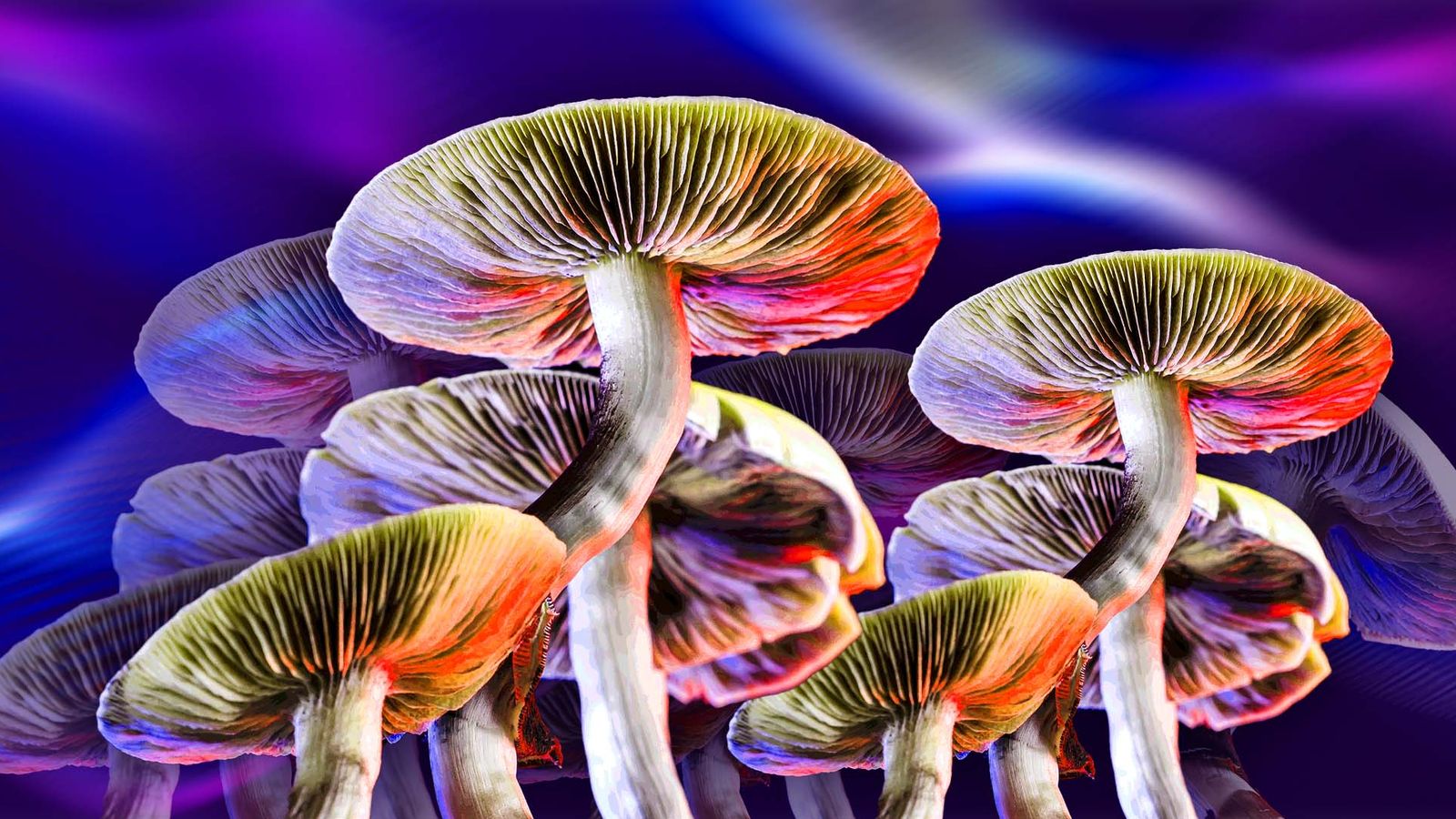[ad_1]
Magic mushrooms have the potential to be an effective antidepressant, according to new research.
Psilocybin – the active ingredient in magic mushrooms – has shown promise in reducing symptoms of depression after one or two doses, with few side effects and no signs of causing addiction.
But past studies have not investigated things that might influence how effective the psychedelic is, such as the dose, whether people have taken psychedelics before and the type of depression.
Researchers set out to address this by looking at randomised controlled trials that compared psilocybin with control substances such as a placebo, vitamin B or micro-dosing psychedelics.
Their research was published in medical journal the BMJ.
They looked at seven trials involving 436 people with depression. The change in their depression was measured using a system called “Hedges’ g”.
A score of 0.2 indicates a small effect, 0.5 a moderate effect, and 0.8 or more a large effect.
Overall people treated with psilocybin recorded a score of 1.64.
Greater improvements were seen in older people, those who had used psychedelics before and people with secondary depression (related to an underlying disease) rather than primary depression.
The researchers said the findings are encouraging but further research is needed “to clarify the factors that maximise psilocybin’s treatment potential for symptoms of depression”.
They said issues such as cost, lack of regulatory guidelines and legal safeguards associated with psilocybin treatment need to be dealt with before it can be established in clinical practice.
Read more:
Mums on magic mushrooms: Why parents are ‘microdosing’
Magic mushrooms ‘could help with cancer-related depression’
Consultant psychiatrist Dr Paul Keedwell called the results “impressive”, noting the rapid improvement for many patients.
“Longer follow ups would be welcome, and there is more work to be done on optimal dosing,” he said.
“It seems that a strong psychedelic experience is needed to get the best results.
“The main disadvantage is that some patients find the psychedelic effects unpleasant, and care must be taken to ensure a calm environment for the treatment.”
The authors note that as their analysis uses data drawn from different studies, it is not possible to differentiate between people most likely to benefit from psilocybin and those who might instead experience adverse effects.
[ad_2]
Source link


